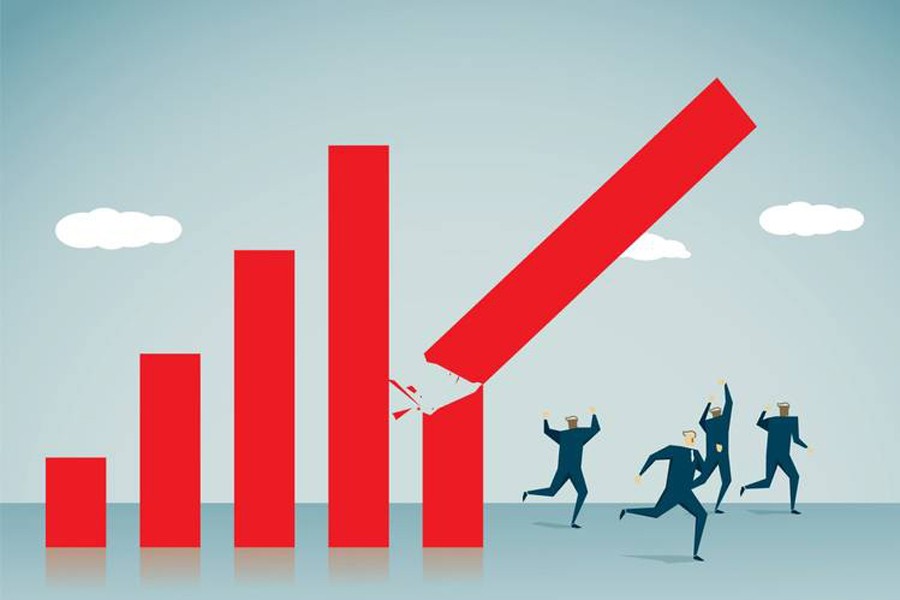
Published :
Updated :

When economic giant Germany barely beats dipping in to recession in their last quarter it becomes a matter of global concern. Most of Europe is already there or precariously close and there's not much the European Central Bank (ECB) can do about it when Europe's most affluent powerhouse falls on bad days. Of greater concern is that if a 'no-deal' Brexit happens the impact of recession will become more acute.
During the last crisis and beyond the ECB went in to zero interest rates i.e. no cost of borrowing and on the contrary, companies weren't encouraged to maintain deposits. There were even rumours of a negative interest rate whereby far from interest on deposits, companies and countries would have to pay for the safe custody of deposits. If the situation looks grim, it is. Debt-ridden countries can't buy bank bonds for income flow thereby limiting their investment inflows, if any is of interest to private sector investors. Analysts therefore, are watching with interest to any new innovations in securities evolved because that's the only way.
Part of the concern comes from the stronger US dollar based on a stronger economy. With more jobs and consumer spending the US is growing leading the Federal Reserve to raise interest rates twice. US analysts and Mr. Trump have been sulking. Higher rates cause US debt and debt to it to become more expensive and quite a few countries have evaluated further to get more bang on the buck. Analysts believe these rates will cause a slowdown in days ahead and a weaker dollar. On the other hand, the higher rates ensure more money in Federal Reserve to pay for expensive and unexpected expenses, which is what their basic job is. Mr. Trump is trying to churn out more productivity in industries and farm produce and essentially more exports abroad aka China. If that strategy fails, it actually helps lower costs for consumers but has the danger of overstocks in inventory.
This is one of the outcomes of the big fight between China and the US in trade that is reportedly beginning to find a solution. Mr. Trump has incensed overseas car manufacturers by suggesting they now relocate spare parts manufacture to the United States. While that has raised furor, led by Ms. Angela Merkel Germany, other countries have not responded through action to the previous Trump act of imposing higher tariffs on steel. Instead they landed a coup through an agreement with Japan whereby Japanese car imports to Europe will be a lot cheaper. That by itself will hit the United Kingdom as it choose to leave the European Union (EU) and is also unable to come to the specialised deal separately either.
This is dangerous for Bangladesh's biggest exports - garments - to the EU. In a recession-hit economy consumer spending suffers in those countries and multiple product buys become of more careful concern than spur of the moment multiple purchases. The government has repeatedly spoken about finding newer markets for produces and one only hopes enough homework has been done to do so. Subsidy allocation too needs to be revised for the right product designed for the right market. In the meantime, the target of $50 billion in exports is now beginning to look over-ambitious unless the world sorts out its economic woes.


 For all latest news, follow The Financial Express Google News channel.
For all latest news, follow The Financial Express Google News channel.